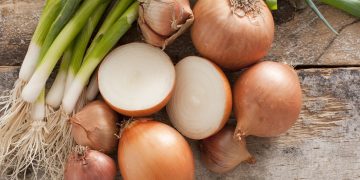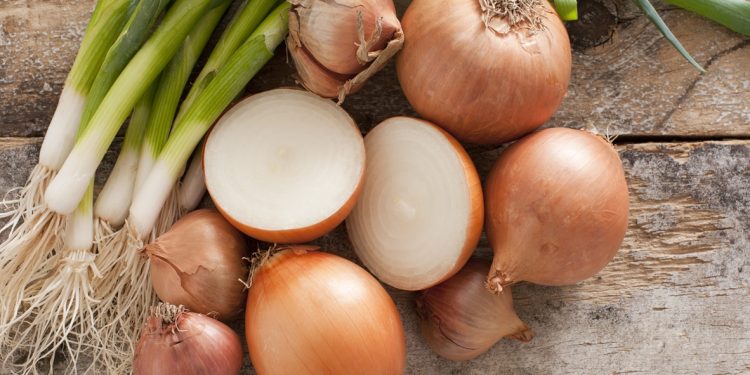Discover the groundbreaking potential of optimizing zinc application in onion cultivation to achieve higher yields and quality. This article delves into the latest research and provides insights on the development, consequences, and effective strategies for harnessing the power of zinc in onion farming.
Zinc is an essential micronutrient for plant growth and development, playing a crucial role in various physiological processes. Recent studies have shed light on the remarkable impact of zinc on onion cultivation, highlighting its potential for optimizing yield and quality. According to a report by the Food and Agriculture Organization (FAO), zinc deficiency is widespread in soils globally, affecting crop productivity and human nutrition.
To fully comprehend the significance of zinc in onion farming, let’s explore the key findings of a comprehensive study conducted by researchers at the esteemed Agricultural Research Service (ARS) in collaboration with leading agricultural universities. The study examined the effects of zinc application on onion growth, bulb development, and overall crop performance.
The research findings demonstrated that optimized zinc application significantly enhanced various aspects of onion cultivation. When zinc fertilizers were applied at appropriate rates and timings, onion plants exhibited improved nutrient uptake, enhanced root development, and increased bulb size and weight. Moreover, the application of zinc resulted in higher bulb firmness, extended shelf life, and improved marketability of onions.
In addition to its direct impact on crop productivity, zinc application also influences the nutritional composition of onions. Zinc is known to enhance the accumulation of beneficial compounds such as vitamins, minerals, and antioxidants in plants, thus enhancing the nutritional value of the harvested onions.
The consequences of harnessing the potential of zinc in onion farming are far-reaching. By optimizing zinc application, farmers can achieve higher yields, improved crop quality, and enhanced nutritional value. This not only benefits the economic sustainability of farms but also contributes to food security and improved human health.
To leverage the benefits of zinc application effectively, it is essential to follow recommended practices. Soil testing and analysis should be conducted to assess the zinc status of the soil and determine the appropriate dosage and timing of zinc fertilization. It is crucial to ensure that zinc fertilizers are applied at the right growth stages of onion plants to maximize their absorption and utilization.
In conclusion, the optimization of zinc application holds immense promise for onion cultivation, offering farmers a powerful tool to unlock the hidden potential of their crops. By implementing proper zinc management strategies, farmers can witness significant improvements in yield, quality, and nutritional value, paving the way for a sustainable and prosperous future in onion farming.
#OnionFarming #ZincOptimization #CropProductivity #NutritionalValue #SustainableAgriculture































